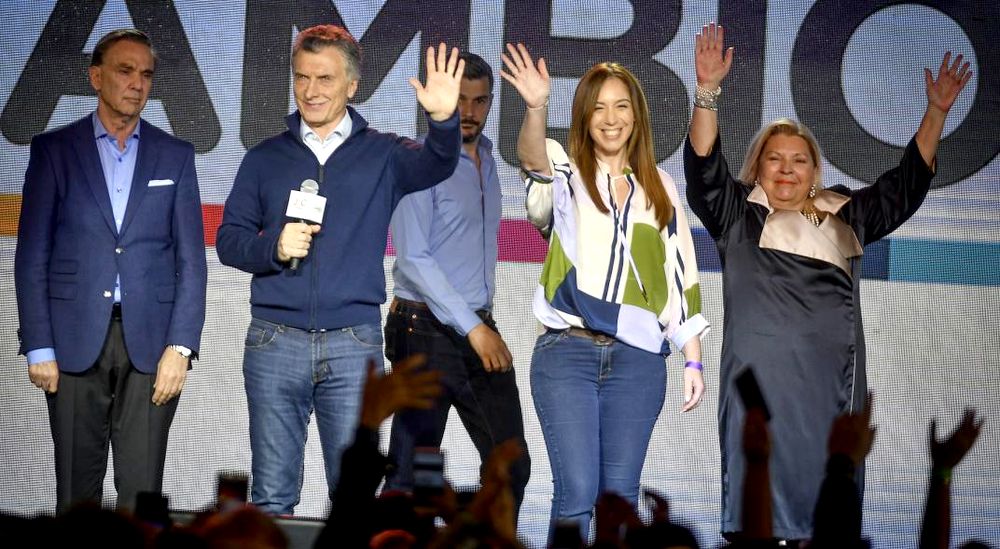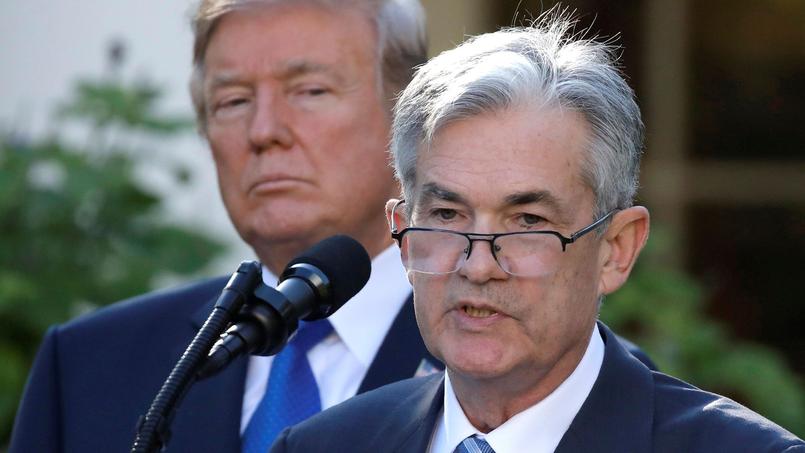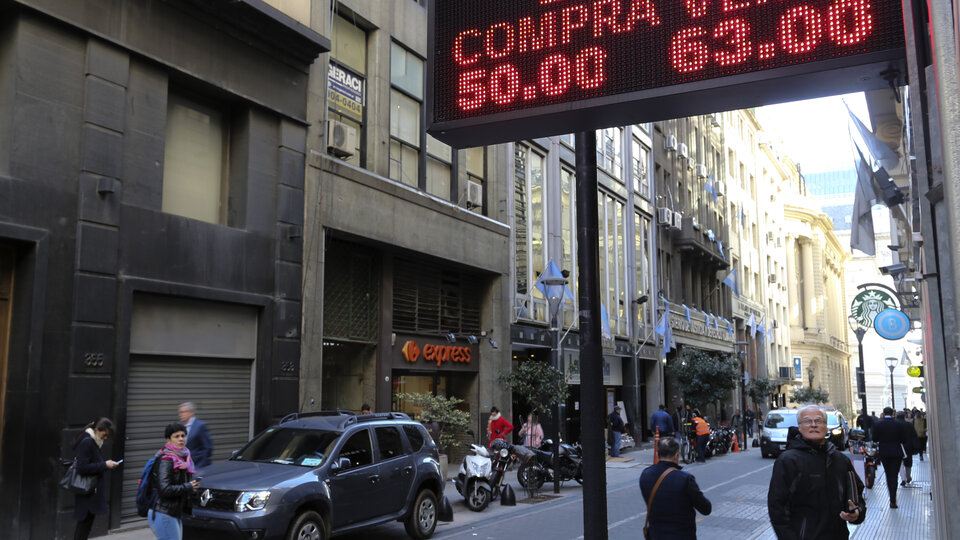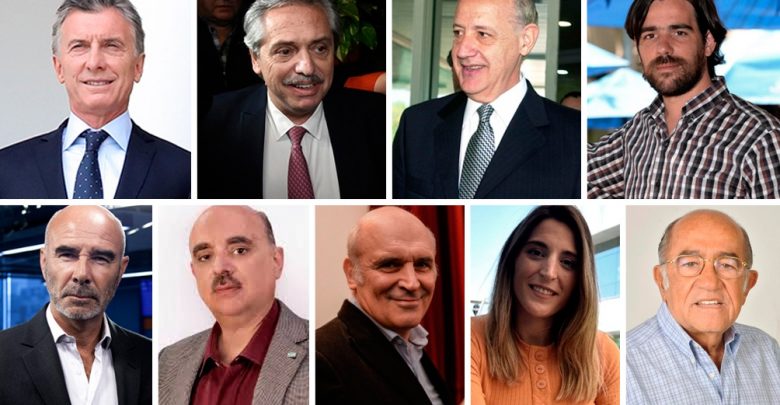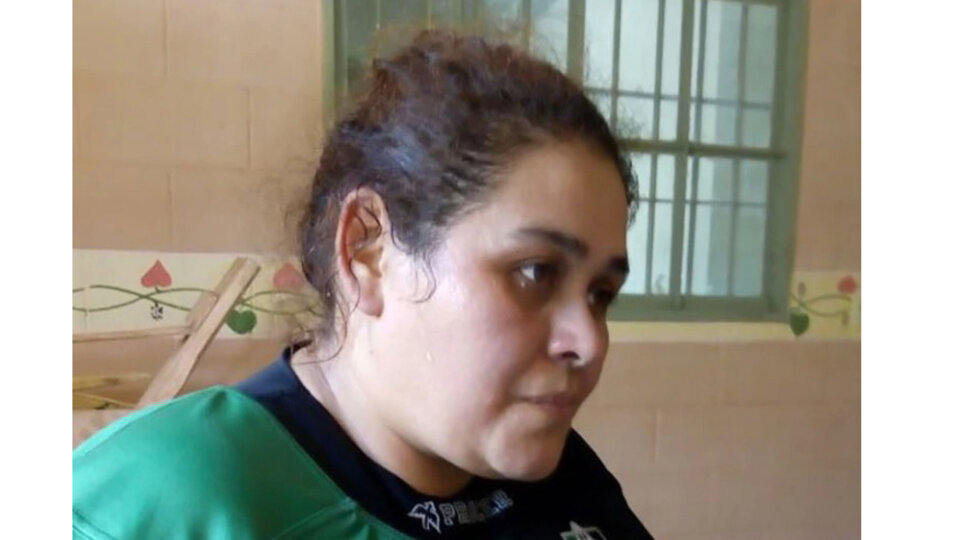peppertree
peppertree's JournalArgentina's Macri alleged to have allowed peso to plummet for political reasons
Former Argentine Central Bank President Martín Redrado stated today that government sources disclosed to him that President Mauricio Macri ordered the central bank not to intervene during a selloff in the peso on Monday for political reasons.
Macri's alleged decision was made the morning after a drubbing in the first round of presidential voting on Sunday.
Confounding most polls and amid high turnout, Macri lost by 15.6% to center-left opposition candidate Alberto Fernández - making the pragmatic Fernández the likely winner of a second round on October 27.
"There was a political order on Monday to allow the exchange rate to float, creating a megadevaluation," Redrado stated.
"The President said on Monday that 'the dollar will go where it has to, such that Argentines may learn whom they voted for'."
Self-inflicted
Redrado, 57, served as central bank president between 2004 and 2010.
His allegation echoed statements made on Wednesday by Luis Caputo, who headed the central bank from June to September 2018 - and is the first cousin of Macri's best friend, Nicolás Caputo.
"The fall (in the peso) was exaggerated - and self-inflicted. It can't be that the central bank allows the dollar to rise by 5 or 8% due to a $5 million trade."
The dollar climbed 23% on Monday, from 46.55 to a record 57.30 pesos - its sharpest since Macri's own, December 17, 2015, devaluation just a week after taking office.
But trading volumes were moderate in Buenos Aires' official foreign exchange market (MULC): $550 million (including public sector sales), compared to an average the previous week of $800 million a day.
The Argentine National Bank, the country's largest, offered dollars at 51 pesos when the market opened on Monday (9.5% above Friday's close).
Absent official intervention, the dollar rose sharply in early hours to an intraday record of 63 pesos - until a $105 million central bank dollar sale at 1:30 p.m. reversed the trend, helping ease the dollar to 57.30.
The dollar closed today at 58.12.
"The central bank was obligated to sell $250 million should the dollar rise above 51.45 pesos - the currency band ceiling agreed to with the IMF," Redrado pointed out. "None of this happened."
Hoarding has been reported since Monday's devaluation, projected to push inflation from 2.2% monthly in July to 14% in August - the highest in 28 years.
Ratings agency Fitch today downgraded Argentina’s sovereign debt rating from B to CCC, calling Argentina's bond default risk "substantial."
At: https://translate.google.com/translate?hl=en&tab=wT&sl=auto&tl=en&u=https%3A%2F%2Fwww.politicargentina.com%2Fnotas%2F201908%2F30180-redrado-denuncio-que-macri-dejo-correr-el-dolar-para-que-los-argentinos-aprendan-a-quien-votar.html
Macri (second from left) and his top allies feign optimism during an election night rally after an unexpectedly severe drubbing on Sunday.
The central bank's inaction the next morning, which led to a 23% jump in the dollar against the peso on Monday, has led to calls for an investigation.
Macri, according to at least one insider, sought to "teach voters a lesson" and believed a sudden crash in the peso might turn the electorate against Sunday's winner, Alberto Fernández.
Polling instead shows voters holding Macri responsible for the crash, by 59% to 28%.
Other critics point to the fact that Macri and many of his top officials keep most of their assets abroad and in dollars - making them instant beneficiaries from a shock devaluation.
Trump is scared about the economy, and he's setting up Jerome Powell as his fall guy
For the first two years of his presidency, Donald Trump bore an existential fear of the Russia investigation. And more often than not, he focused his ire on one man: then-attorney general Jeff Sessions.
It's possible the bigger threat to Trump's presidency is now the economy, which is showing increasing signs of instability. And just as before, Trump appears genuinely worried and has found one man on which to focus his blame:
Federal Reserve Chairman Jerome Powell.
Powell could be in for a world of pain ahead of the 2020 election - especially if things do go south.
At: https://www.sfgate.com/news/article/Trump-is-scared-about-the-economy-and-he-s-14304736.php
Federal Reserve Chairman Jerome Powell and friend.
As the effects of Trump's trade wars and deficits are increasingly felt in the economy, the need for a scapegoat rises proportionately - all the more so in an election year.
Argentina's Macrisis: $20 billion bailout sought from U.S.
Following a surprisingly strong rebuke at the polls on Sunday, Argentine President Mauricio Macri is reportedly in talks with U.S. Federal Reserve officials for a loan of at least $20 billion.
The loan, if granted, would follow an already-record, $57 billion IMF bailout following the collapse in April 2018 of a Macri-sponsored carry-trade debt bubble known locally as the "financial bicycle."
U.S. President Donald Trump has signaled staunch support for the right-wing Macri, with whom he shares both ideology and a 35-year friendship.
The news, reported this morning by Marcelo Bonelli, chief economist at the pro-Macri TN cable news, comes after a steep selloff in the Argentine peso and stocks following Macri's decisive loss in the first round of presidential voting on Sunday.
Amid high turnout, Macri lost by 15.6% to center-left opposition candidate Alberto Fernández - outperforming polls, and making the pragmatic Fernández the likely winner of a second round on October 27.
Macrisis
Fernández has pledged to pay debts but curb financial speculation, which many blame for the ongoing crisis - the deepest since Argentina's 2001-02 crash, which followed similar financial deregulation and free trade policies.
The dollar climbed 23% on Monday, from 46.55 to a record 57.30 pesos - its sharpest since Macri's own, December 17, 2015, devaluation just a week after taking office. The dollar rose today to 58.33.
Hoarding has been reported since Monday's devaluation, expected to push inflation from 2.7% monthly in June to 14% in August - the highest in 28 years.
“With 80% of Argentina's debt denominated in foreign currency,” the Financial Times noted today (up from 40% when Macri took office), “a continued devaluation would put further pressure on the country's debt and increase the likelihood of another Argentine sovereign default.”
'Operation Fear'
Macri reaped criticism for refusing to intervene in local currency markets, allowing the dollar to climb to 62 pesos before intervening at 1:30 p.m. with around $150 million in dollar sales, and a similar amount on Tuesday - well within the $250 million daily limit set by the IMF (which routinely grants Argentina waivers).
Opposition leaders have slammed the administration for both creating the current debt crisis, as well as for their relative inaction over the past two days.
“It's obvious that (Macri) is creating an 'operation fear' by using the markets,” Sergio Massa, one of Fernández's leading allies, said.
“The Central Bank did not intervene. The government had a 'goalie' (the Central Bank) who had the obligation to act - but instead let two goals through.”
At: https://translate.google.com/translate?hl=en&sl=es&tl=en&u=https%3A%2F%2Fwww.eldestapeweb.com%2Fnota%2Fel-gobierno-pidio-un-prestamo-por-u-s20-mil-millones-a-ee-uu-para-contener-al-dolar-hasta-diciembre--201981312200
A billboard outside a Buenos Aires currency exchange advertises Monday's intra-day record of 63 pesos per dollar; it closed today at 58.33.
Argentina's deepening debt crisis - and Sunday's first-round victory by center-left challenger Alberto Fernández by 15.6% - have made President Mauricio Macri's second-round defeat all but certain this October.
Macri is reportedly hoping to capitalize on his friendship with U.S. President Donald Trump by seeking a $20 billion U.S. Federal Reserve bailout to boost his slim chances.
The idea of a direct U.S. bailout - on top of a record $57 billion from the IMF - was first broached last September by Trump's National Economic Council Director Larry Kudlow.
But many now question Trump's policy of propping Macri up with more debt - and in vain.
“By October,” Latin America analyst Siobhan Morden at Amherst Pierpont Securities said, “the next government could inherit an unmanageable crisis.”
Fernandez wins landslide as Argentines vote in first presidential round
Early results from the first round of Argentina's presidential elections show University of Buenos Aires Law Professor Alberto Fernández, ahead of incumbent President Mauricio Macri by 15%.
As of 11:45 p.m. local time, with 86% of precincts in, Fernández garnered 47.3% of the vote, Macri's right-wing 'Together for Change' a distant second at 32.3%, and centrist candidate Roberto Lavagna's 'Federal Consensus' at 8.4%.
Running on the center-left 'Front for Everyone' ticket with former President Cristina Fernández de Kirchner, Fernández (no relation) won in 22 of 24 districts, losing only in Córdoba Province and the City of Buenos Aires.
His party also wrested Buenos Aires Province - home to 3 out of 8 Argentines - from a close Macri ally, Governor María Eugenia Vidal, who lost to economist Axel Kicillof by nearly 17%.
Alberto Fernández, 60, served as chief of staff to the late populist President Néstor Kirchner, whose 2003-07 term is widely credited with raising Argentina from its 2001-02 collapse.
Now a senator, Mrs. Kirchner, 66, had been widely expected to run for president this year - but surprised many by announcing on May 18 that she would instead be Fernández's running mate.
Some 34 million Argentines age 16 and over were registered to vote in this year's elections. Turnout was reportedly high at 75.5%.
Macrisis
Today's rebuke was unexpectedly severe for Macri. Polls had shown Fernández's advantage narrowing since June to around 3% - though door-to-door polls had the difference at around 8%.
The pro-business Macri, 60, enjoyed support from most local media outlets, financial markets - who have profited from Macri's policy of issuing $29 billion in short-term bills yielding 63% - and U.S. President Donald Trump, with whom Macri shares both ideology and a 35-year friendship.
But he lost popularity amid discontent over austerity measures, massive utility hikes, a foreign debt crisis and IMF bailout, the deepest recession since 2002, and inflation up from 23% when Macri was elected to 56% currently.
"We've always fixed the problems others left behind," Fernández recalled during his victory speech. "Our sole task will be to restore the happiness Argentines lost."
At: https://translate.google.com/translate?hl=en&sl=auto&tl=en&u=http%3A%2F%2Fwww.infonews.com%2Fnota%2F324849%2Fperonazo-aplastante-victoria-de-alberto
The nine Argentine presidential candidates, running this year amid a deep recession and debt crisis.
All eyes are on incumbent right-wing President Mauricio Macri (top left); and his center-left rival, Alberto Fernández (2nd, top row).
Exit polls show Fernández's 'Front for Everyone' ahead by 15%, marking an unexpectedly severe rebuke for Macri's neo-con policies.
U.S. to import baby elephants from Zimbabwe despite uproar
U.S. zoos now plan to import baby elephants from Zimbabwe, undeterred by the international furor over their 2016 import of 18 wild elephants from Swaziland.
This import is despite ongoing international campaigns against Zimbabwe’s wild-caught elephant trade and international condemnation for the 2016 US purchase of 18 wild elephants from eSwatini (Swaziland) by AZA accredited zoos.
Of the “Swazi 18” sold to Omaha’s Henry Doorly Zoo, Wichita’s Sedgwick County Zoo and Dallas Zoo, two have died (one during preparation for the export) and two were re-sold - despite promises to keep families together, which is vital to their physical and emotional welfare.
Adding to this, in violation to CITES (Convention on International Trade in Endangered Species) regulations and International Air Transport Association (IATA) transport guidelines, one of the exported elephants was pregnant.
At: https://www.iol.co.za/news/africa/us-to-import-baby-elephants-from-zimbabwe-despite-uproar-30494742
Tourists and elephants enjoy themselves at Zimbabwe's Nehimba Lodge.
The U.S. Association of Zoos and Aquariums (AZA) confirmed possible elephant import by AZA members and others.
Unconfirmed reports from a reputable Zimbabwean source state that San Diego Zoo is likely to be one of the importers.
Chase Bank forgives all credit card debt for Canadian customers
Canadians who had credit cards with Chase Bank can breathe a sigh of relief as the company says it will "forgive" all outstanding debt.
Chase Bank, part of the New York based JPMorgan Chase & Co., closed all credit card accounts in the country in March 2018, the company said.
Originally, customers were told to continue paying their debt, Reuters reported, but the company confirmed Friday to USA TODAY the debt was now cancelled.
"Chase made the decision to exit the Canadian credit card market. As part of that exit, all credit card accounts were closed on or before March 2018.
"A further business decision has been made to forgive all outstanding balances in order to complete the exit," Maria Martínez, vice president of communications for Chase Card Services, said in a statement.
Chase declined to say how much debt was forgiven or how many customers were affected.
At: https://www.usatoday.com/story/money/2019/08/09/chase-bank-canada-forgives-all-credit-card-debt-customers/1964419001/
Canadian shoppers throng Toronto's Eaton Centre.
Canada's household debt-to-income ratio - 175%, compared to 102% in the U.S. - is one of the highest in the world.
Chase officials offered to explanation for their decision to close all credit card accounts in the country (the world's 10th largest economy), and write off all outstanding balances.
FBI ranks 'black identity extremists' bigger threats than Al Qaeda, white supremacists: leaked docs
Source: Newsweek
Leaked FBI documents indicate "black identity extremists" and animal rights activists are among the agency's top counterterrorism priorities under President Donald Trump.
The FBI's priority list documents, obtained by The Young Turks Thursday, lay out the Bureau's 2018 fiscal year focal points in counterterrorism, cyber crime and counterintelligence.
An internal FBI report from August 2017 was widely criticized for using the BIE label, which many called racist. But the Consolidated Strategy Guide documents leaked this week show the FBI kept the term and made BIEs one of its top counterterrorism priorities.
Under the Trump administration, they're considered a bigger threat than terror groups such as Al Qaeda.
"Animal rights/environmental extremists" and "anti-authority extremists" were also deemed top existential threats.
Read more: https://www.newsweek.com/fbi-leak-black-identity-extremist-threat-1453362
Argentine woman dies while serving 8-year sentence for abortion
An Argentine woman serving an 8-year sentence for "aggravated homicide" as a result of an abortion, died on Monday.
Patricia Solorza died of peritonitis in a public hospital in the western Buenos Aires suburb of San Martín. She had been transferred from a nearby women's prison, and reportedly died handcuffed to the bed.
Solorza, 40, was sentenced in 2013 after undergoing an abortion - which in Argentina remains illegal except in cases of rape, or due to risk to the mother's health.
She was impoverished and had already had two children - the oldest of which suffered a developmental disability due to a bout of infantile meningitis. According to her sister Luján, who had actively advocated for her freedom, Patricia was frequently beaten as a child by their father.
A public health problem
Solorza's death reignited debate over Argentina's restrictive abortion laws, which date from 1921.
Bills legalizing abortion have been debated in Argentina's Congress eight times since 1983 - most recently last year, when a bill legalizing abortion on demand up to the 14th week was passed by the Lower House on June 14 but defeated in the Senate on August 8 by 38 votes to 31.
Despite the legal hurdles, over 300,000 abortions are performed in the country annually - up to 50,000 of which result in dangerous complications, and, in 2017, in 30 deaths.
President Mauricio Macri has long opposed abortion rights.
Macri vetoed a municipal bill as mayor of Buenos Aires in 2012 that guaranteed abortion rights in cases of rape (as Argentine law currently stipulates), and reaped controversy by earmarking 121 million pesos ($4.3 million at the time) in the 2018 budget to a non-profit run by an abstinence and pro-life advocate, Dr. Abel Albino.
His right-wing "Let's Change" caucus in Congress largely voted against the 2018 bill.
Opposition candidate Alberto Fernández of the center-left Front for Everyone, himself a law professor, has long supported the decriminalization of abortion.
"Since 1983 I've been pointing out that punishing a woman for an abortion is barbarous," he told journalist Horacio Verbitsky in a May interview.
"This is a serious public health problem - not a criminal matter."
At: https://translate.google.com/translate?hl=en&tab=wT&sl=auto&tl=en&u=https%3A%2F%2Fwww.pagina12.com.ar%2F210931-la-historia-de-patricia-solorza-presa-por-abortar-murio-aban
Patricia Solorza, who died, handcuffed to a bed, of peritonitis while serving an 8-year prison sentence for an abortion.
While abortion remains illegal in Argentina except in cases of rape, or due to risks to the mother's health, over 300,000 abortions are estimated to be performed in the country annually.
The center-left Front for Everyone, whose nominee Alberto Fernández is ahead in most polls, has pledged to bring up pro-choice legislation next year should Fernández prevail in the October elections.
Argentina's Extortiongate: Right-wing journalist indicted
Argentine Federal Judge Alejo Ramos Padilla, who oversees a case of a state-sponsored extortion scheme involving millions in ransom payments and false testimony coerced against political opponents, issued indictments against journalist Daniel Santoro.
Santoro, 60, was indicted for extortion and coercion in connection with the wide-reaching case, which implicates Argentina's Federal Intelligence Agency (AFI) and President Mauricio Macri's hard-line Security Minister, Patricia Bullrich.
Santoro is alleged to have collaborated with indicted AFI agent Marcelo d'Alessio by writing hit pieces against those refusing to meet ransom payments and provide false testimony against Macri's political rivals.
The chief judicial affairs writer for the country's leading right-wing news daily Clarín, Santoro, the court found, "knew that d'Alessio carried out illegal intelligence, espionage, and criminal investigations - and used (the information) despite knowing of its illicit origin."
Audio, video, and WhatsApp messages and call logs show a close relationship between Santoro and d'Alessio - as well as with Bullrich and Federal Prosecutor Carlos Stornelli, another close Macri ally.
Stornelli was charged with espionage but has refused to testify and has been in contempt of court since March 27. Several other AFI agents and a district attorney, Juan Bidone, have also been charged.
Amid an imploding debt bubble, Macri is facing job disapproval of 70% and had relied on corruption allegations against rivals to boost his reelection chances this year.
Shakedown
Among the victims listed in the indictment were Gonzalo Brusa Dovat, who as a local manager for Venezuela's state-owned oil firm PdVSA was found to have been extorted by Santoro to give false testimony against the firm to Stornelli.
A raid on d'Alessio's home on February 13 uncovered CIA, U.S. Embassy and Israeli Defense Ministry documents, and evidence of operations against neighboring Uruguay and PdVSA - allegedly part of the Trump administration's push to freeze PdVSA's overseas assets.
Both U.S. Ambassador Edward Prado and AFI chief Gustavo Arribas, a longtime business partner of Macri's, deny involvement.
Another victim listed in the indictment was public contractor Mario Cifuentes, who testified to being coerced by Santoro after d'Alessio failed to obtain a $1.2 million bribe - part of an effort, Cifuentes testified, to force him to sell his oil field equipment supplier OPS.
Santoro wrote an unsubstantiated hit piece against Cifuentes on April 6, 2018 - one week after footage shows Cifuentes in d'Alessio's car, seen running red lights in a busy Buenos Aires avenue and illegally sporting a police siren.
Etchebest tapes
Extortiongate surfaced when, on February 8, 22 hours of incriminating tapes collected by farmer Pedro Etchebest, from whom d'Alessio sought a $300,000 ransom, were published by investigative journalist Horacio Verbitsky.
The tapes, made throughout January, show d'Alessio boasting that some $12 million in bribes had been coerced from victims since August 2018, that political opponents had been “framed,” and that Stornelli “managed” the enterprise.
Etchebest, 70, had his photo leaked to Clarín by government staff on February 19, and has reported receiving numerous threats. He now lives in Florida with his son.
At: https://translate.google.com/translate?hl=en&tab=wT1&sl=auto&tl=en&u=https%3A%2F%2Fwww.pagina12.com.ar%2F210773-daniel-santoro-fue-procesado-por-coaccion-y-extorsion
The four extortioneers: Federal Judge Claudio Bonadío, Federal Prosecutor Carlos Stornelli, Argentine Federal Intelligence agent Marcelo d'Alessio, and Clarín writer Daniel Santoro.
Argentine courts have implicated Bonadío, charged Stornelli, and indicted d'Alessio and Santoro (plus several others) in connection with the Extortiongate case.
President Macri has close ties to both alleged principals in the extortion ring:
To Carlos Stornelli through the Boca Juniors football club (which Macri headed until entering politics);
and to Marcelo d'Alessio through d'Alessio's uncle (whom Macri appointed presidential notary public), and through d'Alessio's former law partner - who administers Macri's blind trust.
Texas grandma heroically foils grandson's mass shooting plot by bringing him to hospital
A Texas grandmother was hailed as a hero by federal authorities after she foiled a potential mass shooting by taking her grandson to a hospital after he allegedly made threats.
William Patrick Williams, 19, was taken into custody by federal agents in Lubbock, Texas, after he told his grandmother about a plot to "shoot up" a local hotel and then commit suicide by cop, according to the Department of Justice.
According to a criminal complaint, the plot came to light on July 13, just weeks before a pair of mass shootings claimed the lives of at least 31 people in one weekend, when Williams told his grandmother that he'd purchased an AK-47.
At: https://abcnews.go.com/US/texas-grandma-heroically-foils-grandsons-mass-shooting-plot/story?id=64785245
Profile Information
Member since: Thu May 18, 2017, 12:36 PMNumber of posts: 21,713
